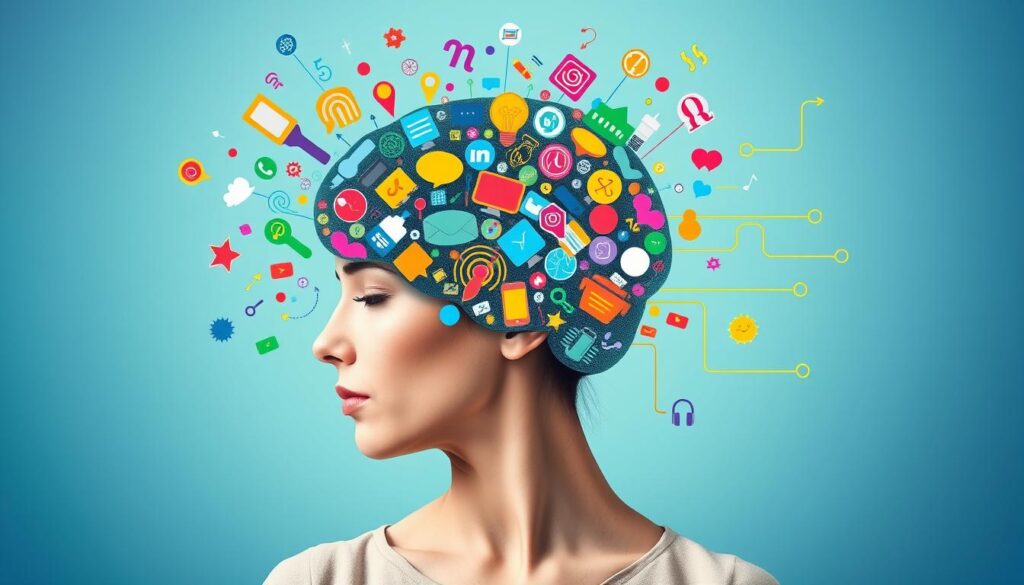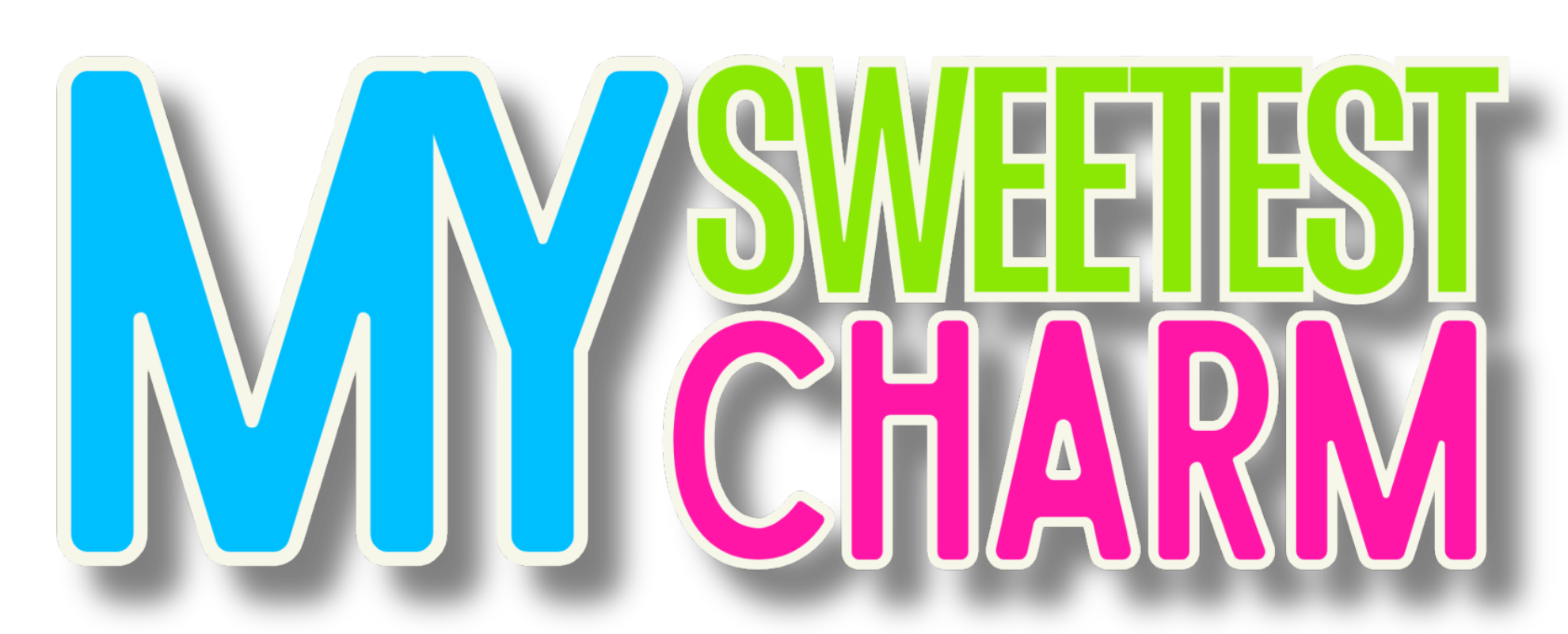Ever found yourself scrolling endlessly, binge-watching, or putting off important tasks? You’re not alone. Modern life is full of digital temptations. It’s easy to get caught up in distractions instead of working hard towards our goals.
But why do we crave these distractions so much? Even when we know they harm our long-term goals, our brains seem to prefer them. In this article, we’ll explore why this happens and how to break free from it. By understanding our brain’s decision-making, we can regain our focus and achieve lasting fulfillment.
Key Takeaways
- Distractions often provide instant gratification, triggering the release of dopamine in our brains.
- Our brain is wired to prioritize short-term rewards over long-term benefits, making it challenging to stay focused on progress.
- Constant context switching and multitasking can lead to decreased productivity and cognitive fatigue.
- Social media and digital temptations shape our attention and productivity patterns, often in detrimental ways.
- Developing sustainable habits and creating a distraction-free work environment can help us overcome the instant gratification trap.
Understanding the Psychology Behind Choosing Distractions Over Progress
Ever found yourself scrolling through social media for hours, even with important tasks waiting? This behavior is linked to how our brain works. Let’s explore why we do this and how to stop it.
The Role of Dopamine in Instant Gratification
Our brains love pleasure and rewards. Distracting activities release dopamine, making us feel good. This instant happiness can be hard to resist, making it tough to focus on long-term goals.
How Our Brain Processes Rewards
Our brain favors quick rewards over long-term gains. This is because our instincts seek immediate satisfaction. But, to reach our goals, we must learn to delay gratification and think about the bigger picture.
The Comfort Zone Phenomenon
Trying new, challenging tasks can make us uncomfortable. Our brain tries to avoid this. So, we often choose easy distractions, even if they don’t help us in the long run.
Knowing why we prefer distractions helps us find ways to stay focused. Next, we’ll look at why we avoid hard tasks.

The Science of Why We Avoid Challenging Tasks
Humans often prefer tasks that give quick rewards over those that lead to lasting success. The science behind this shows how our minds work in interesting ways.
Our cognitive biases make us think hard tasks are too tough and we can’t do them. The fear of failing and wanting to save energy makes us choose easier, more fun activities.
Our brain’s reward system also plays a big part. Doing things that give us instant pleasure, like social media or TV, makes our brain happy. This happiness can make it hard to focus on tasks that take time to see results.
To change this and have a progress mindset, we need to understand our minds better. By knowing our biases and learning to control our brain’s rewards, we can prioritize tasks and minimize distractions. This helps us reach our goals in the long run.
Distractions vs Progress: The Ultimate Battle of Modern Life
In today’s fast world, distractions and progress are a big fight for many. The quick thrill of instant gratification often beats the lasting joy of focused work. Knowing this helps us reach our best and succeed for good.
Short-term Pleasure vs Long-term Satisfaction
Our brains love quick rewards, like social media or binge-watching. These give us a quick high but take away from the deep joy of reaching our goals.
The Cost of Context Switching
Switching tasks and devices hurts our productivity and focus. Each switch makes our brain work harder, leading to tiredness and lost momentum. This makes it hard to stay disciplined and reach our goals.
Breaking the Distraction Cycle
To beat distractions, we need good discipline, focus strategies, and productivity tips. This might mean setting limits, using time blocks, and making hard tasks more fun.
By knowing why distractions happen, we can fight them and use our time and energy for what’s important. The journey to progress is tough, but the rewards are worth it.
How Social Media Shapes Our Productivity Patterns
Social media is a big part of our lives today. It helps us stay connected but can also distract us. Knowing how it affects our productivity is key to managing our time better.
Social media grabs our attention with notifications and updates. These make our brains release dopamine, making us feel good. But, this can make us focus less on important tasks.
- The allure of social media: Exploring the psychological factors that draw us in and make it difficult to resist the temptation of constant online engagement.
- The impact of notifications: Understanding how the constant pings and alerts from our devices can derail our concentration and disrupt our workflow.
- Developing disciplined social media habits: Strategies for setting boundaries, limiting usage, and prioritizing focused work over mindless scrolling.
By understanding social media’s impact, we can manage our time better. This helps us stay focused and grow personally.
| Social Media Usage | Impact on Productivity | Recommended Strategies |
|---|---|---|
| Frequent social media check-ins | Disrupted focus, decreased task completion | Set specific times for social media usage, use app blockers or website limiters |
| Constant notifications | Fragmented attention, reduced deep work | Turn off notifications, use “do not disturb” modes on devices |
| Engaging in social comparisons | Decreased motivation, feelings of inadequacy | Curate your social media feed, practice gratitude, and focus on your own progress |
Breaking Down the Instant Gratification Trap
In today’s world, we face many temptations for quick fixes. Social media and endless streaming options can distract us. But, by knowing why we get drawn in and setting limits, we can stay focused on our goals.
Understanding Digital Temptations
Our brains love pleasure and rewards. Getting likes and notifications gives us a dopamine rush. This makes it hard to do the hard work needed for progress.
It’s also easy to get caught up in simple digital activities. To break free, we need to understand our biases and be brave enough to try new things.
Creating Healthy Boundaries
- Identify your digital temptations and create a plan to limit their impact.
- Implement productivity techniques like the Pomodoro method to help you stay focused.
- Prioritize your tasks and schedule time for deep work, without the distractions of social media or other digital interruptions.
- Cultivate a supportive environment, whether it’s a dedicated workspace or regular check-ins with an accountability partner.
By understanding our digital distractions and setting boundaries, we can beat the instant gratification trap. It takes discipline and self-awareness. But, the benefits for our long-term goals are worth it.
The Hidden Cost of Constant Task-Switching
Staying focused in today’s fast world is a big challenge. Constantly switching tasks is a major productivity killer. It affects our brain and how well we work.
When we switch tasks, our brain stays connected to the old one. This makes it hard to focus on the new task. It leads to less productivity and more stress.
Using productivity hacks and time management strategies can help. By focusing on one task at a time, we reduce distractions. This lets us dive deeper into our work.
| Task-Switching Costs | Benefits of Focused Work |
|---|---|
| Increased cognitive load | Improved information retention |
| Reduced productivity | Enhanced problem-solving skills |
| Higher stress levels | Greater sense of accomplishment |
Knowing the costs of task-switching helps us do better. By focusing more, we can achieve more in our lives.
Rewiring Your Brain for Deep Work and Focus
To grow and reach our goals, we need to change how we do our daily tasks. We can learn to focus better by understanding why we often seek quick rewards. This lets us change our brain’s habits to value deep work and focus more.
Building New Neural Pathways
Our brains can change and adapt, a fact known as neuroplasticity. This means we can teach our minds to make new connections that support a progress mindset. By doing hard tasks that take time, we build brain paths that value long-term rewards over quick fixes.
Implementing Focus Training Techniques
- Use the Pomodoro technique: Work in focused 25-minute blocks, then take short breaks. This trains your brain to stay focused.
- Try mindfulness meditation: It helps you control your attention and ignore distractions.
- Explore binaural beats or white noise: These sounds can help you concentrate better.
- Avoid multitasking: Your brain works best when you focus on one thing at a time.
By using these techniques regularly, we can change our brains to enjoy the feeling of achieving goals more than quick rewards.
Building a progress mindset and improving our discipline are key to reaching our full abilities. With effort and the right methods, we can change our brain to excel in deep work and focus.
Creating a Distraction-Free Work Environment
In today’s world, where attention is scarce, creating a distraction-free workspace is key. By making changes to our physical and digital spaces, we can focus better. This helps us make progress on important tasks.
Optimizing the Physical Space
To start, we need to look at our physical space. Here are some steps:
- Keep our desk clean and organized to avoid visual clutter.
- Place our workstation in a quiet spot, away from busy areas or windows.
- Use noise-cancelling headphones or ambient sounds to block out noise.
- Add plants or nature-inspired elements to create a calm and focused environment.
Curating the Digital Landscape
Our digital world can also be distracting. Here’s how to handle it:
- Turn off app and email notifications to avoid constant checking.
- Use browser extensions or apps to block distracting websites during work hours.
- Close tabs and apps you don’t need to keep your digital space tidy.
- Try the Pomodoro Technique or other time-management methods to organize your work.
By using these strategies, we can reduce distractions, boost productivity, and stay focused. This helps us achieve our goals and projects more effectively.
| Distraction-Minimizing Strategies | Productivity Hacks | Staying Focused |
|---|---|---|
| Decluttering desk and workspace | Pomodoro Technique | Noise-cancelling headphones |
| Positioning workstation away from distractions | Browser extensions to block distracting websites | Ambient sounds for focus |
| Turning off notifications | Streamlining digital workspace | Nature-inspired elements in the workspace |
Developing Sustainable Progress-Focused Habits
Long-term success needs more than just a quick burst of motivation. It’s about building consistent habits that help us move forward, even when things get tough. We’ll look at ways to improve our morning routines and track our progress. This will help us manage our time and reach our goals.
Morning Routine Optimization
How we start our day greatly affects our productivity and progress. Creating a morning routine that focuses on being productive and intentional is key. Here are some important parts to consider:
- Start with mindfulness, like meditation or journaling, to clear your mind.
- Do some physical activity, like a quick workout, to get your energy up.
- Focus on tasks that are most important to you, not just checking emails or social media.
Progress Tracking Methods
Keeping track of our progress is vital for reaching our goals. By using different tracking methods, we can understand our productivity better. This helps us see where we can improve and stay motivated. Here are some effective ways to track your progress:
- Use a task management app or digital planner to see your progress over time.
- Keep a progress journal to record your successes, challenges, and what you’ve learned.
- Check your key performance indicators (KPIs) regularly to see how you’re doing towards your goals.
By adopting these habits, we can focus on long-term growth. This helps us stay on track and reach our goals and dreams.
The Role of Accountability in Staying on Track
Beating procrastination and building discipline are key to reaching our goals. Yet, staying focused in today’s busy world is hard. That’s where accountability comes in – a vital tool for moving forward and succeeding.
Accountability helps us take responsibility for our actions and promises. By sharing our progress with others, we feel more accountable. This can push us to beat procrastination and build strong discipline.
- Accountability partners: Having someone who supports our goals and checks in regularly can be very motivating. Knowing we’re accountable to someone else helps us stay focused.
- Public commitments: Sharing our goals with friends, family, or online can make us more accountable. The fear of disappointing others can motivate us to keep our promises.
- Progress-sharing communities: Joining groups focused on overcoming procrastination and achieving goals can be very helpful. Sharing our journey with others creates a sense of community and accountability.
Embracing accountability can give us the motivation we need to overcome procrastination and achieve our goals. It’s a key part of our journey towards growth and success.
| Accountability Method | Benefits | Potential Challenges |
|---|---|---|
| Accountability Partners |
|
|
| Public Commitments |
|
|
| Progress-Sharing Communities |
|
|
Using accountability can help us beat procrastination, build discipline, and reach our goals. Adding accountability to our lives can be a major game-changer in our quest for growth and success.
Transforming Distractions into Productivity Triggers
We often feel overwhelmed by distractions and struggle to stay focused. But, by being more mindful of technology and using time-blocking, we can turn these obstacles into tools for productivity.
Leveraging Technology Mindfully
Smartphones, social media, and digital notifications are everywhere in our lives. While they bring many benefits, they can also distract us. By being more aware of how we use our devices, we can use them to boost our productivity. This might mean turning off notifications when we work or using apps that help us stay on track.
Time-Blocking Strategies
Time-blocking is a great way to avoid distractions and meet our goals. It involves setting specific times for different tasks. This helps us stay focused and avoid getting sidetracked. We can plan our day to match our most productive hours and use time-blocking to signal when it’s time to work hard.
FAQ
What are the main reasons why people often choose distractions over progress?
Several psychological factors lead to this choice. Dopamine’s role in instant rewards and how our brains process these are key. The comfort of staying in our zone also plays a part.
How does the science behind avoiding challenging tasks impact our productivity?
Cognitive biases and the fear of failure make us procrastinate. Our brains also conserve energy by avoiding hard tasks. Knowing these reasons can help us focus on progress.
What are the long-term costs of constantly switching between tasks and distractions?
Switching tasks often leads to decreased focus and cognitive function. This can hinder our ability to achieve important goals.
How does social media shape our productivity patterns, and what can we do about it?
Social media grabs our attention, disrupting our focus. To stay productive, it’s important to manage our social media use and prioritize our goals.
What are some techniques for rewiring our brains to prefer deep work and focus over distractions?
Understanding neuroplasticity and using focus training can help. These methods build new pathways in our brains, making us more focused on progress.
How can we create a distraction-free work environment to boost our productivity?
A clean, organized workspace helps us stay focused. By removing distractions, we can work more efficiently and make steady progress.
What are some sustainable habits and strategies for prioritizing progress over distractions?
Morning routines and tracking progress are helpful. These habits keep us motivated and on track, even when distractions arise.
How can accountability help us stay on track and overcome procrastination?
Working with others or making public commitments can be effective. This accountability helps us stay focused on our goals.
What are some innovative ways to transform common distractions into productivity triggers?
Using technology wisely and time-blocking can help. These strategies turn distractions into tools that support our goals, keeping us productive.















